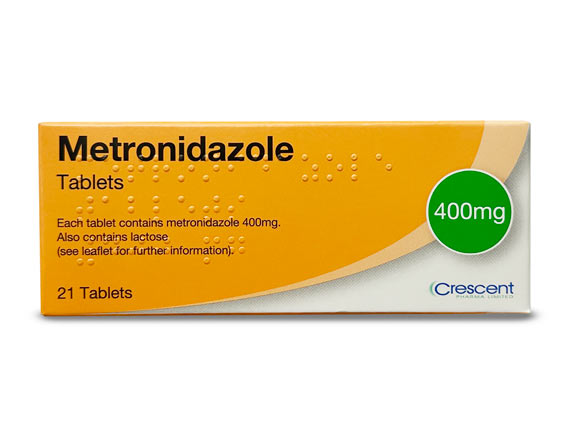Coffee is a part of the routine, for individuals so it’s only natural to be curious, about how it may interact with a new medication. One particular medication that often leads to inquiries is metronidazole. We’ll delve deep into the topic of metronidazole and coffee to provide you with the answers you need.
What is Metronidazole?

Metronidazole is an antibiotic commonly prescribed for infections, such, as vaginosis, pelvic inflammatory disease and certain abdominal infections. Like any medication it’s important to be aware of how it interacts with substances, including coffee.
Are Metronidazole Antibiotics?
Yes metronidazole is indeed an antibiotic. Its main purpose is to combat infections, those caused by anaerobic bacteria and specific parasites. The way metronidazole operates involves interfering with the DNA of the bacteria thereby impeding their growth and ability to reproduce.
What Are the Side Effects of Metronidazole?
Metronidazole, similar, to medications may cause side effects. Some experienced side effects include feeling vomiting having diarrhea experiencing stomach discomfort, loss of appetite and having a metallic taste in the mouth. Although less common there are side effects such as numbness or tingling sensations in the hands or feet seizures and changes in mood. It’s crucial to seek advice, from a healthcare professional if any unusual or severe side effects occur.
Can Metronidazole Treat Chlamydia and Gonorrhea?
Metronidazole is usually not the choice of treatment, for chlamydia or gonorrhea. While both are infections they are caused by bacteria than the ones targeted by metronidazole. Typically healthcare providers prescribe antibiotics like azithromycin or ceftriaxone to address these transmitted infections. However it is always important to consult with a healthcare professional, for the treatment of any condition.
Why is the Interaction Between Metronidazole and Coffee a Concern?
The primary concern regarding metronidazole and coffee is the potential for increased side effects. Both of these substances have the potential to impact the stomach. When they are combined there is a chance that certain symptoms could worsen. It’s also important to note that caffeine, which is the stimulant found in coffee can interact with medications. Therefore it is essential to have an understanding of how it interacts with metronidazole.
Can Coffee Intensify the Side Effects of Metronidazole?
Indeed it is possible for coffee to enhance reactions associated with metronidazole. The typical side effects of this medication encompass feelings of nausea, vomiting and digestive discomfort.
As coffee possesses properties that occasionally irritate the lining of the stomach consuming it alongside metronidazole can potentially heighten the likelihood of experiencing these effects. It’s also worth noting that both metronidazole and coffee can cause headaches, so consuming them together might heighten this risk.
Does Coffee Impact the Efficacy of Metronidazole?
There isn’t any evidence to indicate that drinking coffee directly affects how metronidazole works. However it’s generally a practice to separate the times when you take medication and drink coffee. This way your body can properly absorb the medication without any disruption, from the caffeine or other elements found in coffee.
How Should I Consume Coffee While on Metronidazole?

If you enjoy drinking coffee and don’t want to give it up while taking metronidazole here are some suggestions;
- Limit your consumption; of having cups throughout the day try to restrict yourself to just one or two. This can help minimize any interactions, between drug and coffee.
- Time it Aim to have your coffee a hours before or after taking your medication. By spacing them out your body will have time to process both substances separately.
- Listen to your body; Pay attention to how you feel when you consume both metronidazole and coffee together. If you notice an increase in side effects it might be wise to cut back on the amount of coffee you drink.
Remember these tips are meant to help you optimize the balance, between enjoying your coffee and ensuring the effectiveness of your medication.
Are There Any Other Considerations to Keep in Mind?
Yes, while the primary focus here is on metronidazole and coffee, it’s essential to consider other factors. For example when taking metronidazole it’s important to avoid consuming alcohol as it can cause reactions. It is always recommended to consult your healthcare provider regarding any interactions or concerns you may have.
What’s the Final Verdict on Metronidazole and Coffee?
In conclusion, while there’s no direct contraindication against consuming metronidazole and coffee together, it’s essential to be cautious. It’s an idea to control how coffee you drink spread out when you have it and pay attention to how your body reacts.. Remember, if you’re not sure, about anything it’s always wise to consult with a healthcare professional. They can help ensure your safety and the effectiveness of your medication.
Can I Drink Coffee While Taking Metronidazole 500mg?
Many patients who are prescribed metronidazole 500, mg often question how it may interact with their consumption of coffee. The specific dosage, in this case, 500mg, doesn’t necessarily change the general advice regarding metronidazole and coffee. It’s advisable to keep an eye on any side effects while also considering moderating your coffee intake to ensure that the medication is effective and doesn’t cause any discomfort.
What Can I Drink While Taking Metronidazole?
Apart from the concerns about metronidazole and coffee, patients often inquire about other beverages they can consume while on the medication. Water, herbal infusions and beverages, without caffeine are typically considered safe. However it is important to refrain from consuming alcohol while taking metronidazole as it can potentially cause effects.
Why Can’t I Drink While Taking Metronidazole?

The reason, for the caution against consuming alcohol specifically while taking metronidazole is because it can result in effects. The combination of alcohol and metronidazole may lead to symptoms such, as feeling sick throwing up and experiencing a heartbeat. While the focus here is on metronidazole and coffee, it’s essential to understand the broader context of beverage interactions with this medication.
Can You Drink Coffee After Taking Metronidazole?
Yes, you can drink coffee after taking metronidazole. However, it’s advisable to space out the consumption of metronidazole and coffee. It can be beneficial to wait for a hours after consuming the medication before enjoying a cup of coffee as this may minimize the likelihood of any effects resulting from their interaction.
Does Coffee Interact with Metronidazole?
The interaction between metronidazole and coffee primarily concerns the potential for increased side effects. Although there is no proof indicating that coffee directly diminishes the effectiveness of drug it is possible that the caffeine and acidity present, in coffee could worsen side effects of the medication, such, as stomach discomfort or headaches.
Does Metronidazole Contain Aspirin?
Metronidazole is a type of antibiotic that is commonly prescribed to combat infections. It’s important to note that this medication does not include aspirin. Nevertheless it is always advisable to read the label of any medication and discuss any concerns, with a healthcare professional. While the topic here is metronidazole and coffee, understanding the medication’s components is crucial for overall health and safety.
Final Thought
Metronidazole is an antibiotic that is used to treat a variety of infections and parasites. It is important to follow the usage guidelines and be aware of any side effects. Like any medication it is crucial to understand its purpose, advantages and potential risks in order to achieve the possible health outcomes.
 Usalia
Usalia




